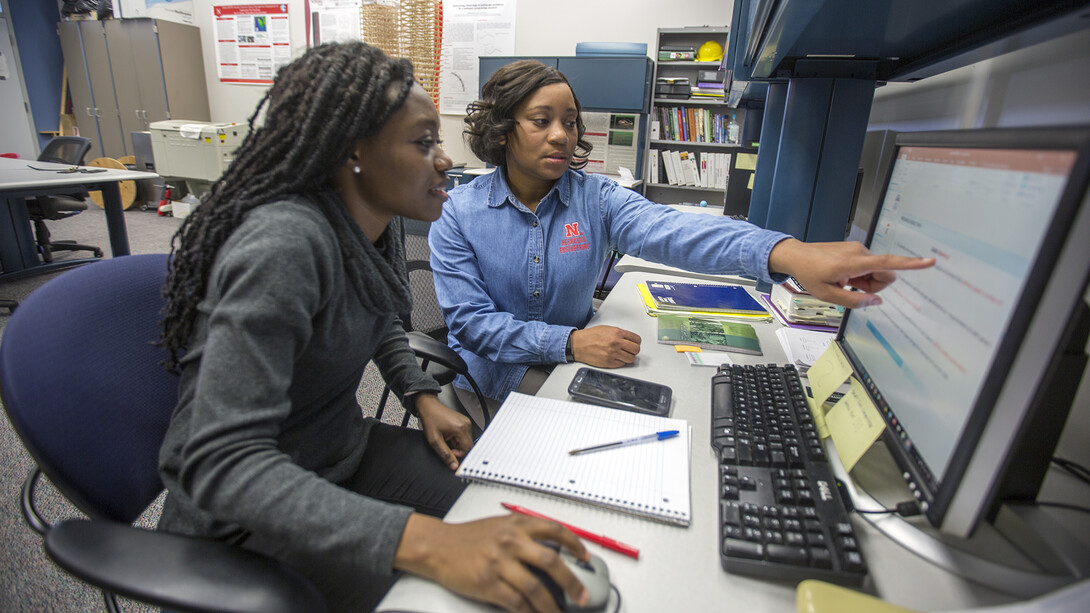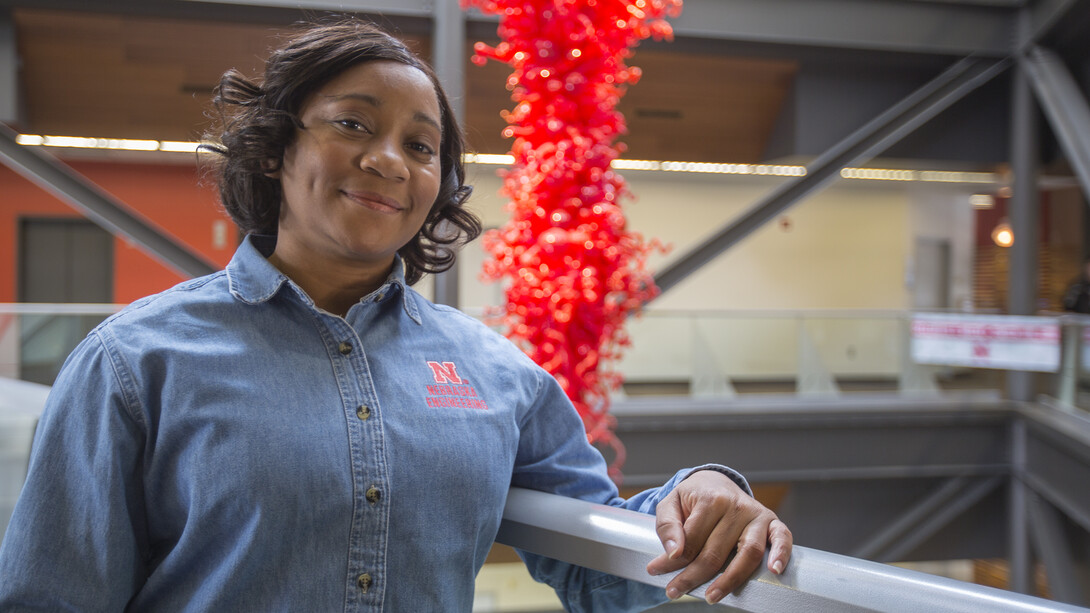
Nebraska’s Terri Norton is helping students — particularly those of color and young women — open doors to careers in engineering.
Along with teaching duties and ongoing research into natural disasters, the associate professor of construction engineering has reformed the University of Nebraska’s chapter of the National Society of Black Engineers, established a nationally-recognized earthquake research team and launched a summer camp that introduces high school girls to science-based careers.

Her work encouraging students to pursue careers in science, technology, engineering and mathematics fields received national recognition as Norton earned an Educational Leadership award on Feb. 10 during the Black Engineer of the Year Conference in Washington, D.C.
“This award is a little bit of validation that I’m doing good work, that there is value in my passion directing students toward STEM fields and, in particular, encouraging them to become engineers,” Norton said. “I want to help every student realize that becoming an engineer opens doors to opportunities they’ve never even considered. It certainly has done that for me.”

Norton’s love for science-based pursuits was fueled as she grew up in Florida watching space shuttle launches alongside her twin sister, Terita, in the backyard. At the time, her career path was clear — astronaut, gymnast or a mix of both (because the idea of doing a flip in zero gravity is super cool).
“One of my fondest memories was when we were in elementary school and my sister and I tried to fix an old TV so we could talk to aliens,” Norton said. “We were both into math and science, and we always had some type of experiment going on at home. It was a great way to keep our minds occupied and kept us out of trouble.”
When the Norton sisters approached their parents about attending Space Camp, their parents — dad, a Marine who served in Vietnam, and mom, a licensed practical nurse — had to say no due to the expense. However, Norton’s parents found other local outlets for their science-loving daughters.
Those programs included the College Reach out Program, Upward Bound and the Math and Science Regional Center at the University of Tennessee. When their twins reached working age, the Nortons allowed the girls to take just one kind of job.
“We were only allowed to work as tutors for elementary school kids in math and science,” Norton said. “Our parents recognized our interests and connected us with the resources we needed to pursue a career in science and engineering.
“That’s the same kind of thing I’m trying to offer through my work with student groups here at Nebraska.”

Five years ago, Norton launched Pink Hard Hat Days, a summer camp that introduces teenage girls to careers in engineering and construction. About 100 girls have gone through the program and seven are currently enrolled in Nebraska Engineering programs.
In 2007, Norton helped reform the University of Nebraska’s chapter of the National Society of Black Engineers. The chapter has 16 active members this year. The society offers leadership training, professional development activities, mentoring, career placement assistance and community service opportunities. Members can also attend the society’s annual conference.
Multiple teams of students advised by Norton have participated in and placed among the world’s best in annual Earthquake Engineering Research Institute competitions. And, she works to expose current Nebraska Engineering students — particularly those from underrepresented groups — to her research into earthquake damage and natural disaster assessments around the globe.
To inspire students and youths she comes into contact with, Norton is open about her background. She talks about being a first-generation college student and how her parents provided support to the best of their ability. She also discusses how those early experiences opened doors that led to college, graduate school, a job in the aerospace industry, a career in academia and research.
“Each of my experiences has shaped me into who I am today,” Norton said. “I would never have gotten here without the support that was given to me by so many people. Now, I want to be a person who opens those doors, who has a network in place to provide experiences to students.”
In a recent television newscast, Norton watched as a young lady talked about using service projects to inspire others in the community. The young lady called herself a “multiplier.”
“I thought that was pretty cool,” Norton said. “My goal is to be a multiplier, providing opportunities that help increase the number of students in STEM fields.”







